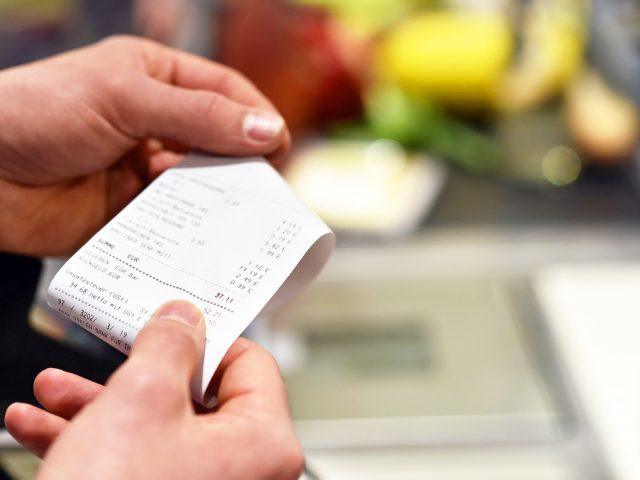How to Spend Smarter at the Grocery Store

Do rising food costs have you wondering how you can still fill your family’s stomachs with nutritious food? If so, you’re certainly not alone. Supply chain issues, labor woes and strong demand are affecting how much we all pay for many items at the grocery store. In fact, meat, poultry, fish and eggs are up 5.9% over last year and 15.7% compared to August 2019, with U.S. inflation hitting a three-decade high in October, as reported by the Washington Post.
But before you trade in your chicken stir-fry for a cup of ramen noodles, it’s important to remember the benefits of eating nutritious foods. A healthy diet keeps your weight in check and may also protect against chronic diseases, such as diabetes, heart disease and cancer.
So rather than cutting back on the good foods your family loves to eat, here are some tips on easing the pain at the grocery check-out:
- Watch for sales. Look for Buy-One-Get-One-Free (BOGO) deals and coupons. Just don’t get too swayed by sales—only buy items you would’ve bought anyway so they don’t go to waste.
- Buy store brands. These are often of similar quality as your favorite brands but at a fraction of the cost. They often taste just as good, too!
- Choose frozen, canned or dried produce. As long as these foods don’t have added salt, sugar or sauces, they can be just as nutrient-packed as their fresh counterparts and cost less (frozen is the best option). You’ll also waste less on fresh produce that goes bad before you eat it.
- Buy non-perishable items in bulk. Shop sales for bulk items with a long shelf life like rice, pasta, nuts, beans and spices. Household products like toilet paper and paper towels are also cheaper in large packages.
- Skip convenience foods. Pre-made entrees, sandwiches, salads and baked goods usually cost more than buying the ingredients to make food yourself. As an added bonus, homemade meals are often much healthier and don’t contain preservatives.
- Shop smart. Sign up for your store’s rewards program or bonus card. This can save you additional money on some of your favorite items.
- Get your caffeine fix at home. You’d be surprised by how much cheaper it is to buy coffee or tea at the grocery store than a coffee shop. Same goes for soda and other drinks.
- Spend your money on quality foods. It’s always a good idea to spend your money on foods that nourish the body, including meat, dairy, eggs, whole grains, fruits and vegetables. When prices are high or money is tight, it’s especially important to prioritize these foods. Junk food, like soda, cookies, candy and chips, can really add to your grocery bill but doesn’t provide any nutritional value.
Copyright 2024-2025 © Baldwin Publishing, Inc.. Health eCooks® Heart Healthy Recipes® is a registered trademark of Baldwin Publishing, Inc. Any duplication or distribution of the information contained herein without the express approval of Baldwin Publishing, Inc. is strictly prohibited.